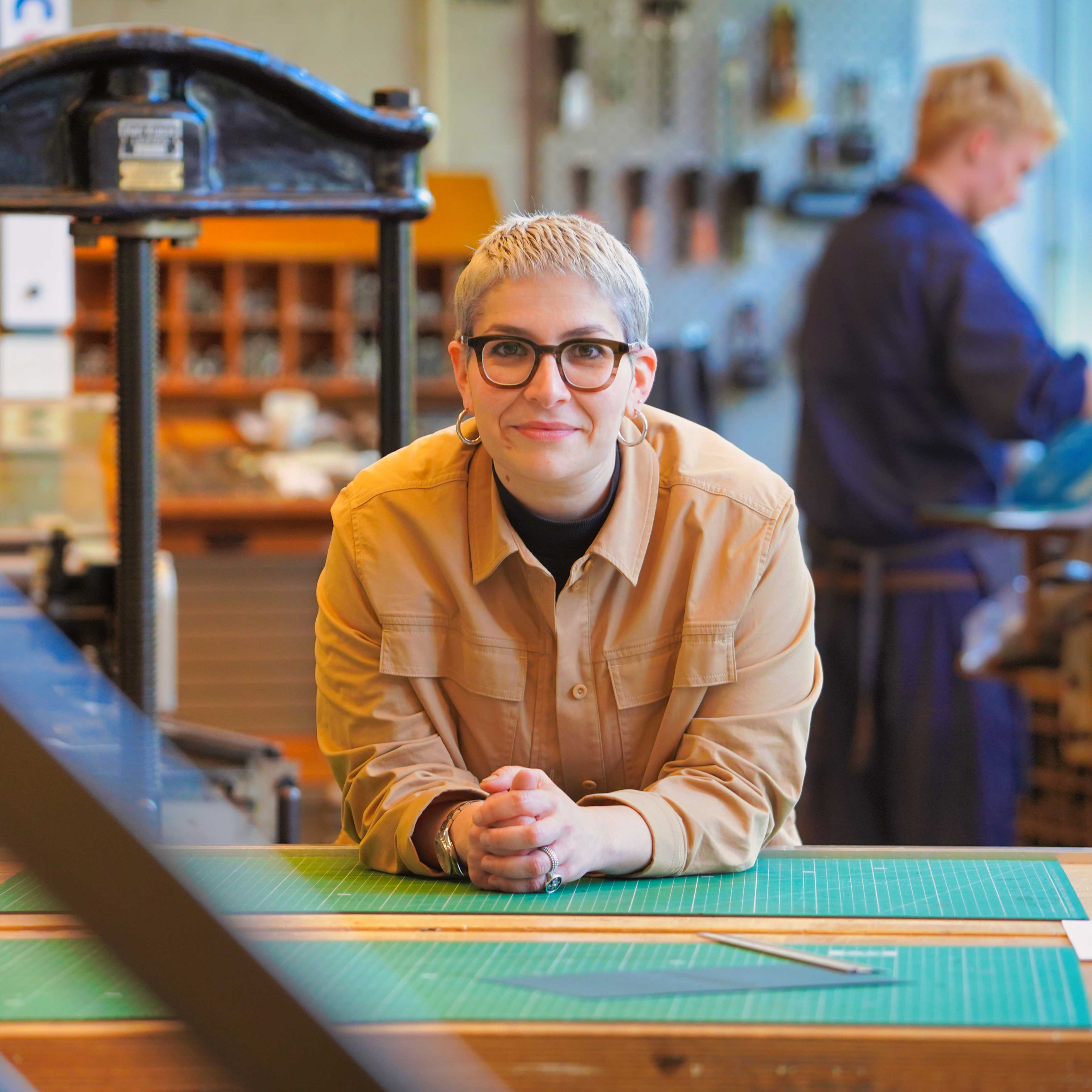Art education as catalyst
Fabiola Camuti was a new face at HKU this year, after finishing her postdoc research at ArtEZ, where she studied non-hierarchical methods of education. In January 2024, she came to Utrecht to start her exploration of the educational systems of HKU. On 16 January, she was appointed as professor of Critical Creative Pedagogies within the research domain Creative Making Processes and Learning. The central question of this new professorship: how and what must we teach in art education to ensure that artists, designers and performers can make a relevant contribution to the challenges of today’s society? “If you want to bring about change in society, the educational domain can be a very powerful instrument for this,” Camuti explains. “The political and social impact of education is often underestimated, but it is often where transformations begin.”
Personal stake
Questioning the norm will be the leitmotiv in this professorship, and this is rooted in her DNA. Camuti tells the story of her great grandmother: in fascist Sicily right after World War 1, she became pregnant while having an affair with a married man. Despite the social exclusion this brought upon her, she decided to keep the child: Camuti’s grandmother. And as soon as the law permitted it, she changed the ‘bastard name’ Aquila, which used to be mandatory for any child born out of wedlock, into Camuti. In the traditional system that name would have died out by now, because her father never had a son. Yet he did have a daughter, who also managed to escape from the conventions: she founded a queer household with two mothers and one son, bearing the name Camuti. Every day, it can be felt how the heteronormative culture permeates everything, even though it has gotten out of date. “In many aspects, I have a personal stake in doing this research,” Camuti explains.
Critical pedagogy
Is our educational system actually attuned to our current situation, in which we aspire to inclusive, open-minded and equal treatment of each other? In this spirit, the professorship ‘Critical Creative Pedagogies’ builds forth on the critical pedagogy of Paulo Freire, who encourages critical thought, the scrutiny of power structures, and the aiming towards social justice. Instead of telling students how things work, you can also provide them with the tools to figure it out for themselves, Camuti explains: “The art of asking questions is slowly disappearing; we jump to solutions way too quickly. Education is turning too much in a sort of corporation that is only about performing and gaining study credits. I want to create more freedom for research and reflection. Not to control students, but to empower them and enable them to take their own creativity seriously.” Over the last year, she formulated three research lines and six basic research questions. These are now incorporated in the professorship plan that has recently been approved. It will serve as the blueprint for her work in the coming years, in which Camuti will closely cooperate with HKU’s Platform Education, the Art In Education courses at HKU, and their lecturing researchers and students.
 Research in Creative Education
Research in Creative Education